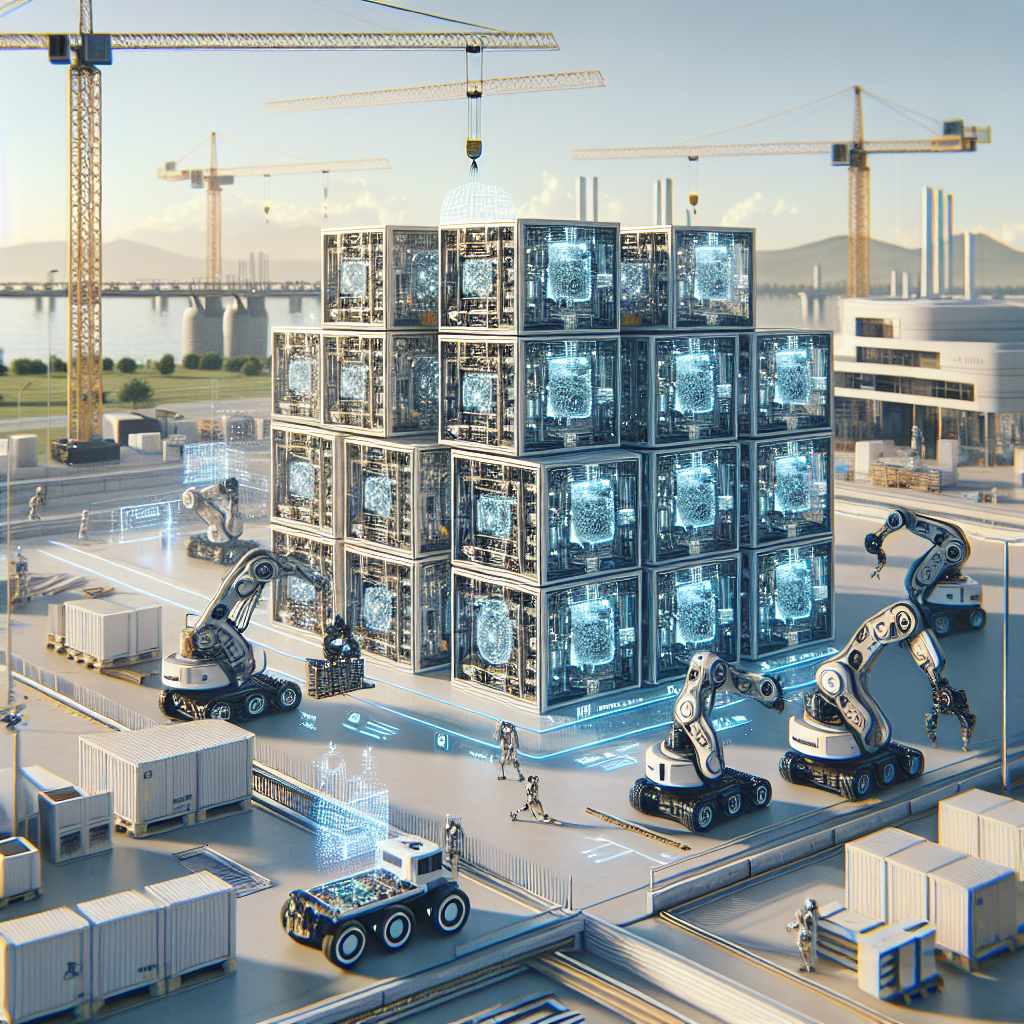Modular construction, also known as prefabrication, is a method of building where individual components or modules are constructed off-site in a factory-controlled environment and then assembled on-site. This process offers numerous benefits over traditional construction methods, including faster build times, reduced waste, improved quality control, and lower costs. As the construction industry continues to evolve, one technology that is playing an increasingly important role in modular construction is artificial intelligence (AI).
AI refers to the simulation of human intelligence processes by machines, especially computer systems. In the context of modular construction, AI can be used to optimize the design and fabrication of modular components, improve project management, and enhance overall efficiency. This article will explore the role of AI in modular construction and discuss some of the key ways in which this technology is being utilized in the industry.
1. Design Optimization: One of the key advantages of using AI in modular construction is its ability to optimize the design of modular components. AI algorithms can analyze vast amounts of data to identify the most efficient and cost-effective design solutions. This can help architects and engineers to create modular components that are not only structurally sound but also aesthetically pleasing and environmentally friendly.
2. Fabrication Automation: AI can also be used to automate the fabrication process of modular components. By using AI-powered robots and machinery, manufacturers can produce modular components more quickly and accurately than traditional methods. This can help to reduce production costs and improve the overall quality of the finished product.
3. Project Management: AI can also play a crucial role in project management in modular construction. By using AI-powered software, project managers can track progress, monitor costs, and identify potential issues in real-time. This can help to ensure that projects are completed on time and within budget.
4. Supply Chain Optimization: AI can be used to optimize the supply chain in modular construction by analyzing data on material availability, transportation costs, and lead times. This can help manufacturers to source materials more efficiently and reduce waste throughout the construction process.
5. Safety Monitoring: AI can also be used to improve safety on construction sites by monitoring worker behavior and identifying potential hazards. AI-powered sensors and cameras can detect unsafe practices and alert supervisors to take corrective action.
6. Energy Efficiency: AI can help to improve the energy efficiency of modular buildings by optimizing heating, cooling, and lighting systems. By analyzing data on energy usage and environmental conditions, AI algorithms can adjust building systems to maximize efficiency and reduce energy costs.
7. Predictive Maintenance: AI can also be used to predict when maintenance is needed on modular buildings. By analyzing data on equipment performance and usage, AI algorithms can identify potential issues before they become major problems, reducing downtime and maintenance costs.
8. Customer Engagement: AI can enhance customer engagement in modular construction by providing virtual reality and augmented reality experiences that allow clients to visualize the finished product before construction begins. This can help to improve communication and ensure that the final result meets the client’s expectations.
FAQs:
Q: How does AI impact the cost of modular construction?
A: AI can help to reduce costs in modular construction by optimizing design, automating fabrication, and improving project management. This can lead to faster build times, reduced waste, and improved efficiency, ultimately lowering overall construction costs.
Q: Is AI being used in modular construction today?
A: Yes, AI is already being used in modular construction to optimize design, automate fabrication, improve project management, and enhance safety. As the technology continues to evolve, we can expect to see even greater integration of AI in the industry.
Q: Are there any limitations to using AI in modular construction?
A: While AI offers many benefits in modular construction, there are some limitations to consider. These may include the cost of implementing AI technology, the need for specialized training for workers, and potential concerns about data privacy and security.
In conclusion, the role of AI in modular construction is becoming increasingly important as the industry seeks to improve efficiency, reduce costs, and enhance quality. By leveraging AI technology in design optimization, fabrication automation, project management, and other areas, modular construction companies can stay ahead of the curve and deliver innovative and sustainable building solutions. As AI continues to evolve, we can expect to see even greater advancements in modular construction in the years to come.

